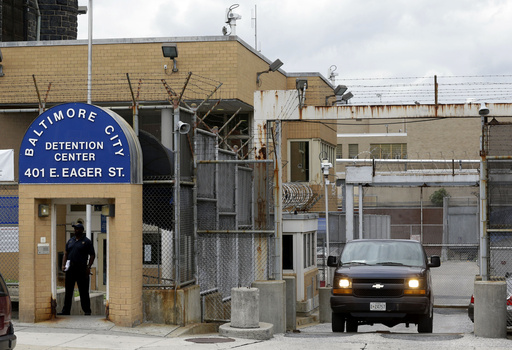
BALTIMORE — An audit recently released highlights significant shortcomings in the management of contracts by Maryland’s Department of Public Safety and Correctional Services, particularly those involving private companies responsible for delivering medical and mental health services to inmates in state-operated facilities.
The audit reveals alarming deficiencies, including numerous missed suicide risk assessments and an insufficient number of mental health evaluations. These findings emerged from a review of three contracts that span approximately five years, commencing in 2018.
One of the key issues identified was understaffing, which is suggested as a significant factor in the failures noted. Moreover, the structure of the contracts is called into question, as it appears to have favored the private companies involved without ensuring that the services rendered met the necessary standards.
The trend of outsourcing healthcare for inmates is gaining traction nationwide; however, it frequently faces backlash, along with lawsuits concerning malpractice, care deficiencies, and neglect.
In Maryland, the audit points to an ongoing failure “to furnish the minimum staffing levels and adequately conduct essential health evaluations” for incarcerated individuals.
While officials from the Department of Public Safety and Correctional Services resisted some of the audit’s assertions, they have generally indicated a willingness to implement its recommendations. They noted that some issues have already been rectified through revised contracts.
Earlier this year, state officials made a pivotal decision to transfer inmate healthcare responsibilities from YesCare, a provider facing adverse public scrutiny, to Centurion of Maryland. The agency has since established new written protocols aimed at ensuring that medical and mental health assessments are completed punctually by contractors.
An investigation conducted previously indicated that the department faced significant staffing shortages, reporting over a 20% vacancy rate in recent years, with a 13% vacancy rate noted in June 2023. The Correctional Services oversees thousands of individuals across 18 facilities, which encompass state prisons as well as Baltimore’s jail, where individuals await trial.
Healthcare expenditures for the department surged markedly from 2018 to 2023, climbing from $120 million to $168.7 million, even as the average population of incarcerated individuals dropped by about 18%, as outlined in the audit published by the Maryland Office of Legislative Audits.
Auditors criticized the fixed fee payment model, remarking that it did not hold the contractors accountable by providing payments “irrespective of the level of staffing supplied or the actual incurred costs for supplies, equipment, and hospital visits.”
Additionally, the contracts lacked competitive hourly wages for healthcare practitioners and mental health professionals, which may have exacerbated issues related to recruitment and employee retention. For instance, a registered nurse working for the medical contractor found themselves earning $25,500 below the state average in 2023.
In response to the findings, department leaders reflected that the new contracts include minimum wage stipulations and a pricing structure that entails fixed price incentives. Furthermore, officials have committed to ensuring thorough investigations for all patient complaints regarding inadequate medical care.
